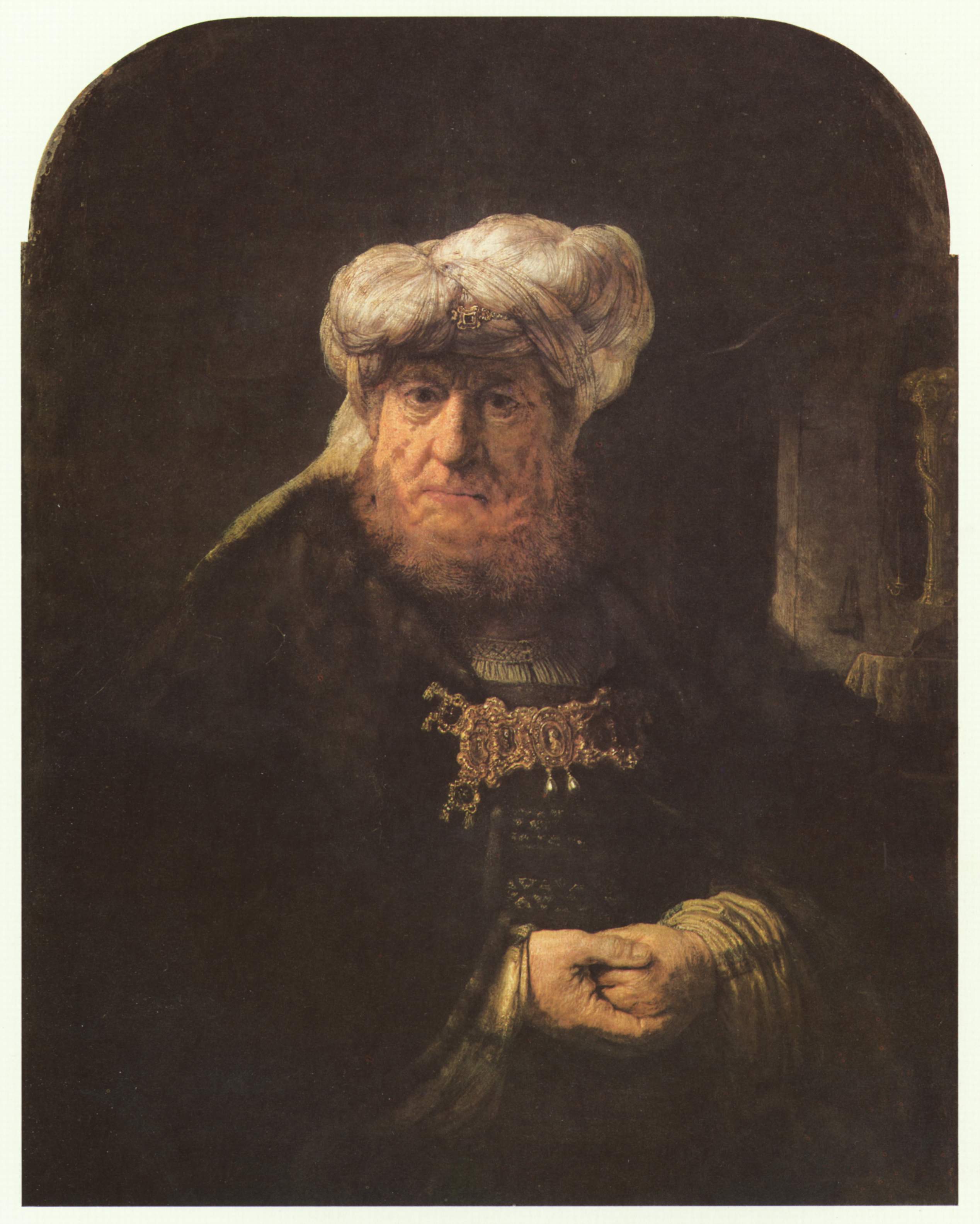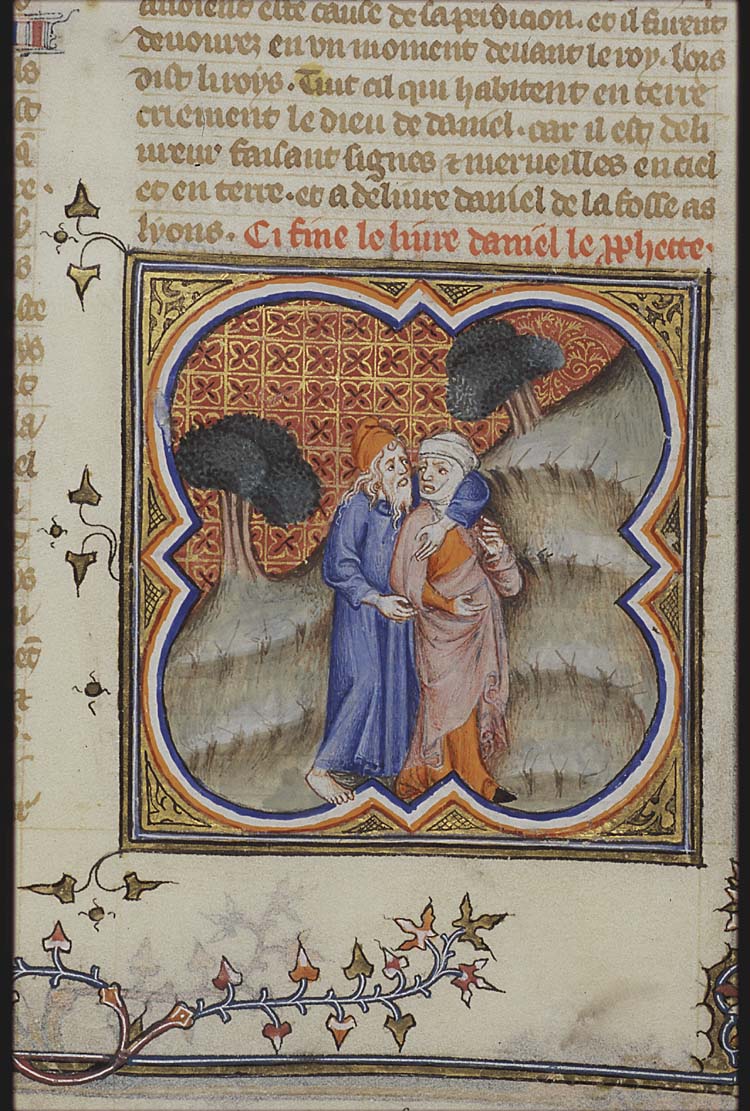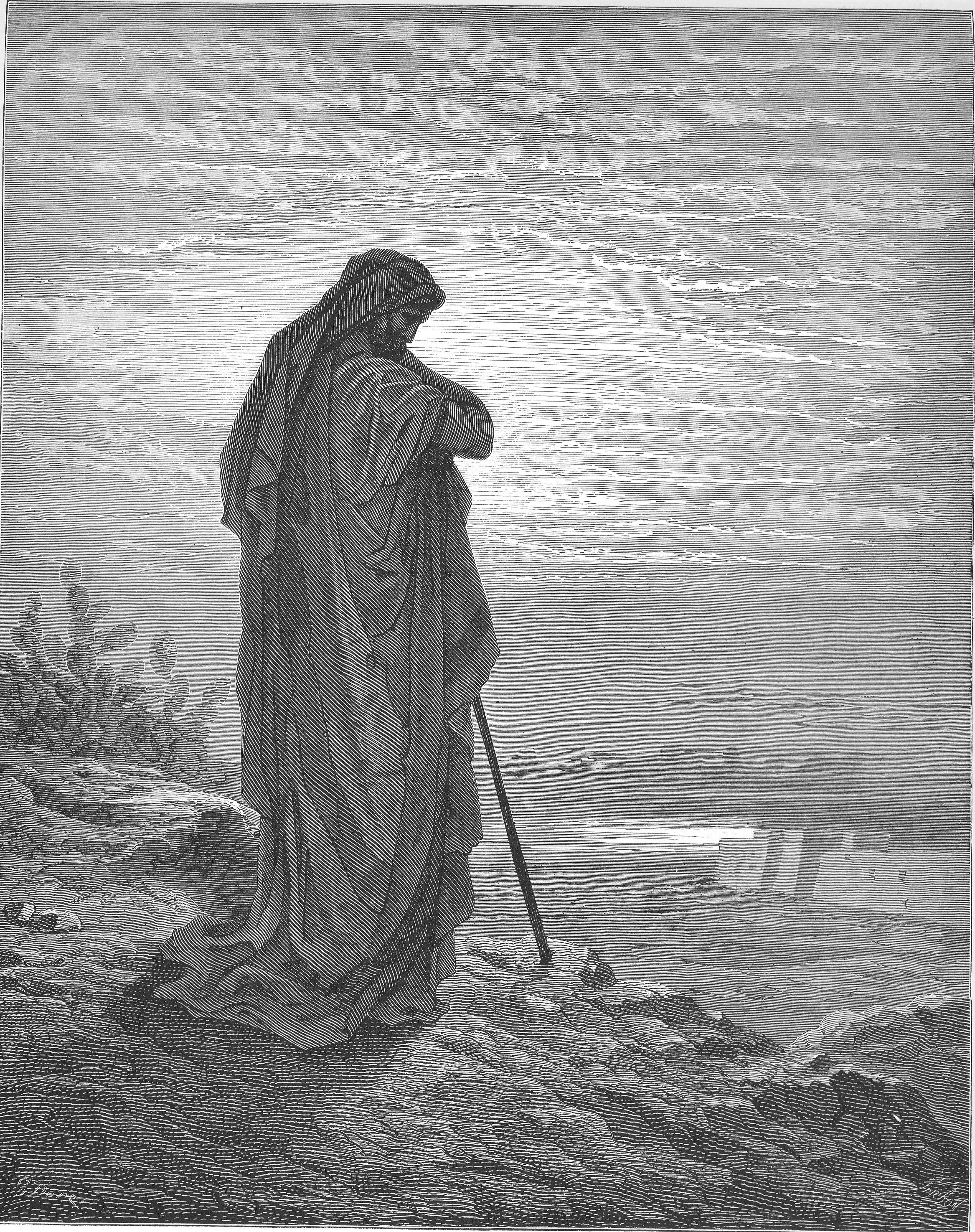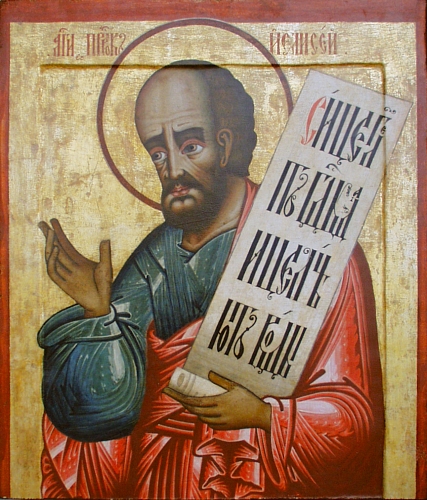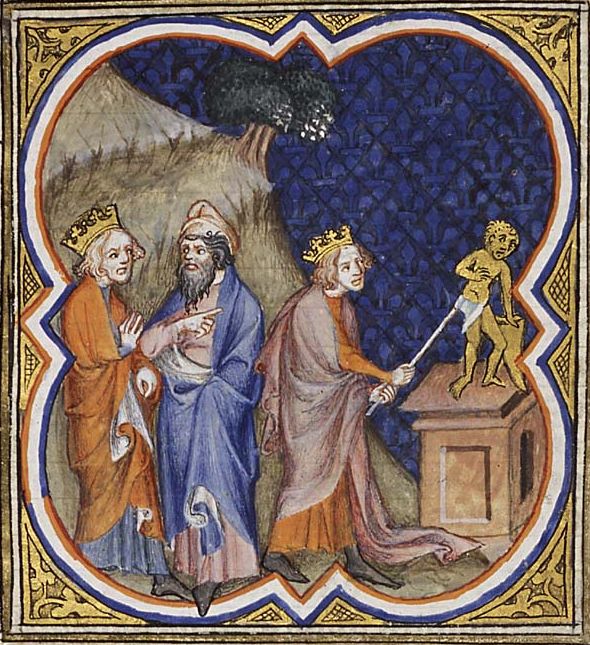|
Timeline Of The Hebrew Prophets
This is a timeline of the development of prophecy among the Jews in Judaism. All dates are given according to the Common Era, not the Hebrew calendar. See also Jewish history which includes links to individual country histories. the Exodus ;c.1450-1350 BC(?): the Exodus from Egypt (prophecy of Moses, Aaron, and Miriam) the Land of Israel ;c. 1300-1250 BC: Joshua leads the people ;c. 1250 BC–c. 1025 BC: Biblical Judges lead the people. (prophecy of Deborah) During the Kingdom of Israel and Judah ;c. 1025 BC–c. 1003 BC: King Saul, prophecy of Samuel, ;c. 1003 BC–c. 963 BC: King David, prophecy of Nathan prophecy of Gad ;c. 963 BC–c. 923 BC: King Solomon ;c. 923 BC–c. 913 BC: King Rehoboam of Judah, prophecy of Shemaiah ;c. 922 BC–c. 910 BC: King Jeroboam of Israel, prophecy of Ahijah ;c. 913 BC–c. 910 BC: King Asa of Judah prophecies of Elijah, Micaiah, and Elisha ;c. 837 BC–c. 800 BC: King Joash of Judah prophecy of ... [...More Info...] [...Related Items...] OR: [Wikipedia] [Google] [Baidu] |
Prophecy
In religion, a prophecy is a message that has been communicated to a person (typically called a ''prophet'') by a supernatural entity. Prophecies are a feature of many cultures and belief systems and usually contain divine will or law, or preternatural knowledge, for example of future events. They can be revealed to the prophet in various ways depending on the religion and the story, such as visions, divination, or direct interaction with divine beings in physical form. Stories of prophetic deeds sometimes receive considerable attention and some have been known to survive for centuries through oral tradition or as religious texts. Etymology The English noun "prophecy", in the sense of "function of a prophet" appeared from about 1225, from Old French ''profecie'' (12th century), and from ''prophetia'', Greek ''propheteia'' "gift of interpreting the will of God", from Greek ''prophetes'' (see prophet). The related meaning, "thing spoken or written by a prophet", dates from 1300, ... [...More Info...] [...Related Items...] OR: [Wikipedia] [Google] [Baidu] |
Rehoboam
Rehoboam (; , ; , ; la, Roboam, ) was, according to the Hebrew Bible, the last monarch of the United Kingdom of Israel and the first monarch of the Kingdom of Judah after the former's split. He was a son of and the successor to Solomon and a grandson of David. In the account of I Kings and II Chronicles, Rehoboam was initially a king of the United Monarchy, but later saw his rule limited to only the Kingdom of Judah in the south following a rebellion by the ten northern tribes of Israel in 932/931 BCE, which led to the formation of the independent Kingdom of Israel under the rule of Jeroboam in the north. Biblical background According to the ''Jewish Encyclopedia'', "Solomon's wisdom and power were not sufficient to prevent the rebellion of several of his border cities. Damascus under Rezon secured its independence romSolomon; and Jeroboam, a superintendent of works, his ambition stirred by the words of the prophet Ahijah (), fled to Egypt. Thus before the death of Solomon, ... [...More Info...] [...Related Items...] OR: [Wikipedia] [Google] [Baidu] |
Isaiah
Isaiah ( or ; he, , ''Yəšaʿyāhū'', "God is Salvation"), also known as Isaias, was the 8th-century BC Israelite prophet after whom the Book of Isaiah is named. Within the text of the Book of Isaiah, Isaiah himself is referred to as "the prophet", but the exact relationship between the Book of Isaiah and the actual prophet Isaiah is complicated. The traditional view is that all 66 chapters of the book of Isaiah were written by one man, Isaiah, possibly in two periods between 740 BC and c. 686 BC, separated by approximately 15 years, and that the book includes dramatic prophetic declarations of Cyrus the Great in the Bible, acting to restore the nation of Israel from Babylonian captivity. Another widely held view is that parts of the first half of the book (chapters 1–39) originated with the historical prophet, interspersed with prose commentaries written in the time of King Josiah a hundred years later, and that the remainder of the book dates from immediately before an ... [...More Info...] [...Related Items...] OR: [Wikipedia] [Google] [Baidu] |
Uzziah Of Judah
Uzziah (; he, עֻזִּיָּהוּ ''‘Uzzīyyāhū'', meaning "my strength is Yah"; el, Ὀζίας; la, Ozias), also known as Azariah (; he, עֲזַרְיָה ''‘Azaryā''; el, Αζαρίας; la, Azarias), was the tenth king of the ancient Kingdom of Judah, and one of Amaziah's sons. () Uzziah was 16 when he became king of Judah and reigned for 52 years. The first 24 years of his reign were as a co-regent with his father, Amaziah. William F. Albright dates Uzziah's reign to 783–742 BC. Edwin R. Thiele's chronology has Uzziah becoming coregent with his father Amaziah in 792/791 BCE and sole ruler of Judah after his father's death in 768/767 BCE. Uzziah was struck with leprosy for disobeying God (, ). Thiele dates Uzziah's being struck with leprosy to 751/750 BCE, at which time his son Jotham took over the government, with Uzziah living on until 740/739 BCE.Edwin R. Thiele, ''The Mysterious Numbers of the Hebrew Kings'' (3rd ed.; Grand Rapids, MI: Zonderva ... [...More Info...] [...Related Items...] OR: [Wikipedia] [Google] [Baidu] |
Hosea
In the Hebrew Bible, Hosea ( or ; he, הוֹשֵׁעַ – ''Hōšēaʿ'', 'Salvation'; gr, Ὡσηέ – ''Hōsēé''), son of Beeri, was an 8th-century BCE prophet in Israel and the nominal primary author of the Book of Hosea. He is the first of the Twelve Minor Prophets, whose collective writings were aggregated and organized into a single book in the Jewish Tanakh by the Second Temple period, forming the last book of the Nevi'im; but which writings are distinguished as individual books in Christianity. Hosea is often seen as a "prophet of doom", but underneath his message of destruction is a promise of restoration. The Talmud claims that he was the greatest prophet of his generation. The period of Hosea's ministry extended to some sixty years, and he was the only prophet of Israel of his time who left any written prophecy. Name The name ''Hosea'' (meaning 'salvation', 'he saves' or 'he helps'), seems to have been common, being derived from a related verb meaning ''sa ... [...More Info...] [...Related Items...] OR: [Wikipedia] [Google] [Baidu] |
Amos (prophet)
In the Hebrew Bible and Christian Old Testament, Amos (; he, עָמוֹס – ''ʿĀmōs'') was one of the Twelve Minor Prophets. An older contemporary of Hosea and Isaiah, Amos was active c. 760–755 BCE during the rule of kings Jeroboam II of Israel and Uzziah of Judah. He was from the southern Kingdom of Judah but preached in the northern Kingdom of Israel. Amos wrote at a time of relative peace and prosperity but also of neglect of God's laws. He spoke against an increased disparity between the very wealthy and the very poor. His major themes of justice, God's omnipotence, and divine judgment became staples of prophecy. The Book of Amos is attributed to him. Life Before becoming a prophet, Amos was a sheep herder and a sycamore fig farmer.Coogan, Michael. ''A Brief Introduction to the Old Testament''. p. 257. Oxford: Oxford University Press, 2009. His prior professions and his claim "I am not a prophet nor a son of a prophet" () indicates that Amos was not from ... [...More Info...] [...Related Items...] OR: [Wikipedia] [Google] [Baidu] |
Jonah
Jonah or Jonas, ''Yōnā'', "dove"; gr, Ἰωνᾶς ''Iōnâs''; ar, يونس ' or '; Latin: ''Ionas'' son of Amittai, is a prophet in the Hebrew Bible and the Quran, from Gath-hepher of the northern kingdom of Israel in about the 8th century BCE. Jonah is the central figure of the Book of Jonah, which details his reluctance in delivering God's judgement on the city of Nineveh. Subsequently he returns to the divine mission after he is swallowed by a large sea creature and then released. In Judaism, the story of Jonah represents the teaching of ''teshuva'', which is the ability to repent and be forgiven by God. In the New Testament, Jesus calls himself "greater than Jonah" and promises the Pharisees "the sign of Jonah", which is his resurrection. Early Christian interpreters viewed Jonah as a type for Jesus. Jonah is regarded as a prophet in Islam, and the biblical narrative of Jonah is repeated in the Quran. Mainstream Bible scholars generally regard the Book of Jona ... [...More Info...] [...Related Items...] OR: [Wikipedia] [Google] [Baidu] |
Jehoash Of Judah
Jehoash (; el, Ιωας; la, Joas), also known as Joash (in King James Version), Joas (in Douay–Rheims) or Joás (), was the eighth king of Judah, and the sole surviving son of Ahaziah after the massacre of the royal family ordered by his grandmother, Athaliah. His mother was Zibiah of Beersheba. Jehoash was 7 years old when his reign began, and he reigned for 40 years. ( 2 Kings 12:1, 2 Chronicles 24:1) He was succeeded by his son, Amaziah of Judah. He is said to have been righteous "all the days of Jehoiada the priest" () but to have deviated from fidelity to Yahweh after Jehoiada's death (). William F. Albright has dated his reign to 837–800 BCE, while E. R. Thiele offers the dates 835–796 BCE. Early life According to the Hebrew Bible, following the death of his father, Ahaziah, Jehoash was spared from the rampages of Ahaziah's mother, Athaliah, by Jehoash's paternal aunt, Jehosheba, who was married to the high priest, Jehoiada. After hiding him in the T ... [...More Info...] [...Related Items...] OR: [Wikipedia] [Google] [Baidu] |
Elisha
Elisha ( ; or "God is my salvation", Greek: , ''Elis îos'' or , ''Elisaié,'' Latin: ''Eliseus'') was, according to the Hebrew Bible, a prophet and a wonder-worker. His name is commonly transliterated into English as Elisha via Hebrew, Eliseus via Greek and Latin, or Alyasa via Arabic, and Elyasa or Elyesa via Turkish. Also mentioned in the New Testament and the Quran, Elisha is venerated as a prophet in Judaism, Christianity and Islam and writings of the Baháʼí Faith refer to him by name. Before he settled in Samaria, Elisha passed some time on Mount Carmel. He served from 892 until 832 BC as an advisor to the third through the eighth kings of Judah, holding the office of "prophet in Israel". He is called a patriot because of his help to soldiers and kings. In the biblical narrative, he is a disciple and protégé of Elijah, and after Elijah was taken up in a whirlwind, Elisha received a double portion of his power and he was accepted as the leader of the sons of th ... [...More Info...] [...Related Items...] OR: [Wikipedia] [Google] [Baidu] |
Micaiah
Micaiah ( he, ''Mīḵāyəhū'' "Who is like Yah?"), son of Imlah, is a prophet in the Hebrew Bible. He is one of the four disciples of Elijah and not to be confused with Micah, prophet of the Book of Micah. Prophecy The events leading up to the appearance of Micaiah are illustrated in 1 Kings 22:1-12. In 1 Kings 22:1-4, Jehoshaphat, the king of Judah goes to visit the King of Israel (identified later, in 1 Kings 22:20, as Ahab), and asks if he will go with him to take over Ramoth-gilead which was under the rule of the king of Aram. Jehoshaphat the Judahite requests that Ahab the Israelite, “Inquire first for the word of the Lord” (1 Kings 22:5). Ahab then calls on his prophets and asks if he should go into battle against Ramoth-gilead. The prophets responded by telling the king of Israel to go into battle, stating that the Lord (Adonai) will deliver Ramoth-gilead into the hand of the king (1 Kings 22:6). Jehoshaphat asks if there are any other prophets of whom to inquir ... [...More Info...] [...Related Items...] OR: [Wikipedia] [Google] [Baidu] |
Elijah
Elijah ( ; he, אֵלִיָּהוּ, ʾĒlīyyāhū, meaning "My God is Yahweh/YHWH"; Greek form: Elias, ''Elías''; syr, ܐܸܠܝܼܵܐ, ''Elyāe''; Arabic: إلياس or إليا, ''Ilyās'' or ''Ilyā''. ) was, according to the Books of Kings in the Hebrew Bible, a prophet and a miracle worker who lived in the northern kingdom of Israel during the reign of King Ahab (9th century BCE). In 1 Kings 18, Elijah defended the worship of the Hebrew God over that of the Canaanite deity Baal. God also performed many miracles through Elijah, including resurrection, bringing fire down from the sky, and entering heaven alive "by fire". 2 Kings 2:11 He is also portrayed as leading a school of prophets known as "the sons of the prophets". Following his ascension, Elisha, his disciple and most devoted assistant, took over his role as leader of this school. The Book of Malachi prophesies Elijah's return "before the coming of the great and terrible day of the ", making him a harbinger of ... [...More Info...] [...Related Items...] OR: [Wikipedia] [Google] [Baidu] |
Asa Of Judah
Asa (; el, Ασά; la, Asa) was, according to the Hebrew Bible, the third king of the Kingdom of Judah and the fifth king of the Davidic line, House of David. The Hebrew Bible gives the period of his reign between 40–41 years. His reign is dated between 913–910 BC to 873–869 BC. He was succeeded by Jehoshaphat, his son (by Azubah (mother of Jehoshaphat), Azubah). According to Edwin R. Thiele, Thiele's chronology, when Asa became very ill, he made Jehoshaphat coregent. Asa died two years into the coregency. Asa was zealous in maintaining the traditional worship of God, and in rooting out idolatry, with its accompanying immoralities. After concluding a battle with Zerah of Ethiopia in the 10th year of his reign, there was peace in Judah () until the 36th year of Asa's reign (). In his 36th year he was confronted by Baasha of Israel, Baasha, king of Kingdom of Israel (Samaria), Israel. He formed an alliance with Ben-Hadad I, king of Aram Damascus, and using a monetary bribe, ... [...More Info...] [...Related Items...] OR: [Wikipedia] [Google] [Baidu] |



